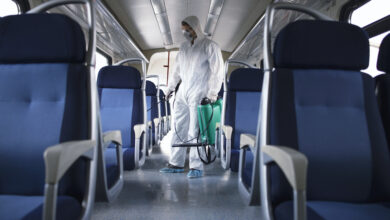Cleaners and Housekeepers: Roles, Skills, Opportunities, and Growth
Introduction
In today’s fast-paced world, cleanliness and organization have become more important than ever—whether in homes, offices, hotels, or healthcare environments. Cleaners and housekeepers play an essential role in maintaining hygiene, comfort, and orderliness in every setting. Often working behind the scenes, these professionals ensure that living and working spaces are clean, safe, and welcoming.
This article will explore the duties, skills, job opportunities, training, and future prospects for cleaners and housekeepers. Whether you are looking to hire, train, or become one, this comprehensive guide will provide valuable insights.
Who Are Cleaners and Housekeepers?
Cleaners and housekeepers are individuals responsible for cleaning, organizing, and maintaining indoor spaces. While the terms are sometimes used interchangeably, they may differ based on the work setting and responsibilities.
- Cleaners often focus on cleaning offices, commercial buildings, schools, hospitals, and industrial environments.
- Housekeepers usually work in homes, hotels, resorts, or private properties, combining cleaning with organization, hospitality, and sometimes caregiving.
Despite their differences, both roles require attention to detail, time management, physical stamina, and a high degree of responsibility.
Core Duties and Responsibilities
Typical Cleaner Duties:
- Sweeping, mopping, and vacuuming floors
- Dusting surfaces and furniture
- Cleaning restrooms and replenishing supplies
- Emptying trash bins and managing waste
- Cleaning windows, doors, and other fixtures
- Sanitizing surfaces to prevent the spread of germs
Typical Housekeeper Duties:
- Making beds and changing linens
- Doing laundry and ironing
- Organizing rooms and personal belongings
- Grocery shopping and basic meal prep (in some roles)
- Taking care of plants or pets (if required)
- Maintaining a clean, comfortable, and pleasant home environment
Both roles may also include deep cleaning tasks such as carpet shampooing, oven cleaning, and wall washing, depending on the employer’s needs.
Essential Skills for Cleaners and Housekeepers
Success in cleaning or housekeeping doesn’t just rely on physical work. Several personal and professional skills contribute to efficiency and trustworthiness:
1. Attention to Detail
Missing a corner or skipping a dusting spot can affect the overall impression. Great cleaners notice what others miss.
2. Time Management
Efficient workers finish their tasks within allocated timeframes without compromising quality.
3. Physical Fitness
The job often requires standing, bending, lifting, and walking for extended periods.
4. Discretion and Trustworthiness
Especially in homes and hotels, housekeepers often work in private spaces and must be trustworthy and respectful.
5. Communication Skills
Being able to understand instructions, report issues, or discuss schedules is essential for both solo and team-based cleaning roles.
6. Use of Cleaning Equipment and Chemicals
Knowing how to safely operate vacuum cleaners, polishers, and other equipment, as well as how to handle cleaning agents safely, is crucial.
Work Environments for Cleaners and Housekeepers
1. Residential Homes
Housekeepers are often employed by individuals or families to clean, cook, or assist with daily routines. Some may live on the property as live-in staff.
2. Hotels and Hospitality
Hotels employ entire housekeeping departments. Duties include daily room cleaning, laundry, linen services, and room setup for new guests.
3. Hospitals and Healthcare
Here, cleaning must follow strict hygiene and infection control protocols. This environment demands high attention to detail and proper use of disinfectants.
4. Schools and Offices
Office and school cleaners usually work after hours to clean workspaces, toilets, cafeterias, and hallways.
5. Commercial and Industrial Facilities
Factories, malls, and public venues hire cleaners to maintain safety and cleanliness on a larger scale.
Job Opportunities and Employment Trends
In South Africa and Beyond
The demand for cleaners and housekeepers is consistently strong in both urban and rural areas. In South Africa, cleaning jobs are available through:
- Domestic employment agencies
- Hospitality and tourism industries
- Government facilities and municipal contracts
- Corporate offices and schools
- Hospitals and care homes
- Independent gig work platforms (e.g., SweepSouth, Handy)
Global demand is also high, especially in countries with a large aging population or growing hospitality industries. Migrant workers often find cleaner/housekeeper roles as an entry point into international job markets.
Education and Training
Educational Requirements
Formal education is not always required, though basic literacy and numeracy skills are preferred. Some employers may require a matric certificate.
Training Opportunities
- On-the-job training is common, where new workers learn by shadowing experienced staff.
- Short courses in hygiene, customer service, and occupational safety are valuable.
- Health and safety training, particularly in medical or chemical environments, is often mandatory.
Certifications (Optional)
- Housekeeping or domestic work certificates (e.g., NQF Level 1–3)
- First aid and fire safety
- Equipment-specific training (e.g., carpet cleaning machines)
Investing in training can increase employment chances, job satisfaction, and salary potential.
Career Growth and Advancement
While cleaners and housekeepers may start in entry-level roles, many build long and successful careers by:
- Specializing in a niche (e.g., hotel housekeeping, post-construction cleaning, elderly care)
- Supervisory roles, such as lead housekeeper, cleaning team manager, or operations supervisor
- Entrepreneurship, such as starting a cleaning company or offering freelance housekeeping services
Professionalism, punctuality, and strong references often lead to promotion and better pay.
Challenges Faced by Cleaners and Housekeepers
Despite the vital role they play, cleaners and housekeepers often face challenges such as:
- Low wages in some sectors
- Lack of recognition for their contribution
- Exposure to chemicals or physically demanding tasks
- Job insecurity, especially in informal employment
- Emotional stress in client-facing roles or when dealing with difficult employers
Advocating for workers’ rights, fair pay, and proper working conditions is essential to improving industry standards.
Tips for Cleaners and Housekeepers to Succeed
- Always be punctual and reliable
- Respect privacy and maintain discretion
- Use cleaning products correctly and safely
- Keep improving your skills through workshops or online courses
- Build positive relationships with employers and coworkers
- Take care of your health—physical and mental
- Stay organized and work with a checklist to ensure nothing is missed
Benefits of Hiring Professional Cleaners or Housekeepers
For individuals and businesses, hiring professionals offers:
- Improved hygiene and cleanliness
- Time saved for more important tasks
- Enhanced productivity and comfort in workspaces
- Guest and client satisfaction in hospitality settings
- Reduced stress in managing home tasks
Technology and Cleaning: The Future of the Industry
The cleaning industry is evolving. Automation and digital platforms are making it easier to find and manage cleaning services. Examples include:
- App-based bookings (e.g., SweepSouth in South Africa)
- Eco-friendly cleaning products that reduce health and environmental risks
- Robotic vacuums and smart appliances
- Online training and certification programs to upskill workers
Professionals who adapt to these trends are likely to remain competitive in the job market.

